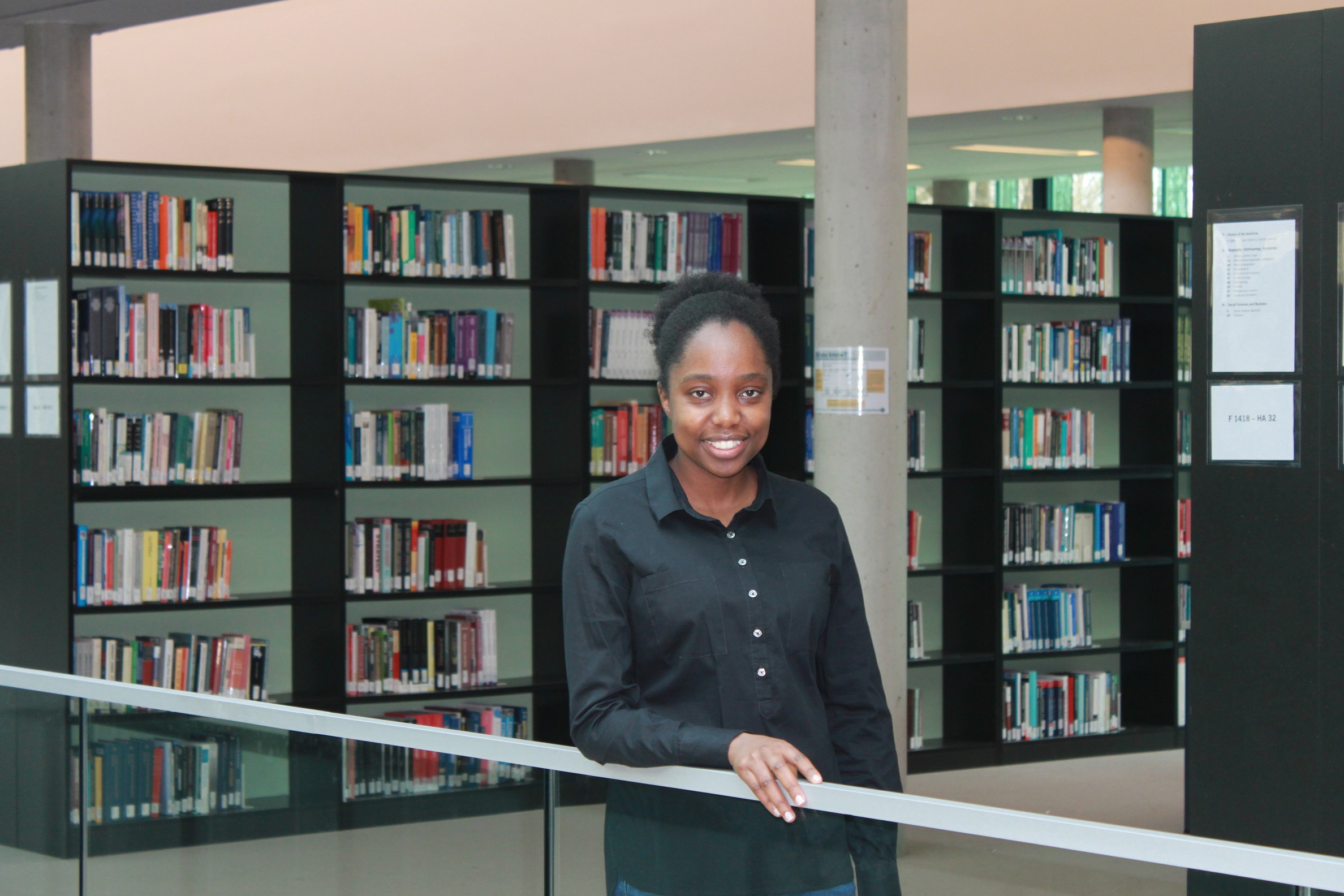Lisa Tichagwa is currently studying at Jacobs University, Bremen pursuing a BSc in Chemistry.
Interview

What was your experience of education growing up?
I had access to education growing up. However, now that I am studying at a university in Germany, I realised that during my primary and secondary schooling in Zimbabwe the end goal was to get good grades. Growing up we thought good grades meant you were a good student; we did a lot of heavy theory work learning from textbooks. There was no reflection about what we were being taught and no practical skills were taught, such as creative thinking and entrepreneurship.
This is an unfortunate way of thinking and means often students don’t have the right mindset to succeed beyond education. This translates to what is happening across the continent with graduates lacking the necessary skills for work and life.
In Zimbabwe, having the practical skills to do specific jobs that are in demand should be part of the education system as this will not only be useful for the job market, but also stimulate creativity.
My friend in Zimbabwe was better at history and literature rather than other subjects. Stories relate and make sense to her. Someone who does well in one or two subjects out of 7 or 8 still shows intelligence. It means different material and information resonates with them and they might excel in a particular field.
I did well enough in my exams, but the textbook approach doesn’t work for everyone. It’s an unfair system of exam procedure not talent. Many young people won’t reach their full potential under this system.
What are some of the barriers to young people going to university?
The main barrier for young people reaching university is finance, especially with the current economic climate in Zimbabwe.
When I was considering university, I saw that a lot of graduates do not have jobs, you can often see graduates selling vegetables and products by the side of the road.
Scholarships are available for students, there are a lot of young people in Zimbabwe who go on the Higher Life Foundation scholarship programme in Zimbabwe. But there are limited international scholarships for young people.
What does a scholarship mean to you?
I applied to study at Jacobs University in Germany and was offered a place to study Chemistry. I am now a third-year undergraduate student.
Initially I was able to come to Germany to start my education, but as each semester went on there were problems financially. With the current economic climate in Zimbabwe it has been very difficult to get much support from my parents and I started to wonder if I would be able to continue my education.
Late in 2018 one of my professors at Jacobs University, Prof. Dr. Ulrich Kortz, came to me and told me about the August Wilhelm von Hofmann Foundation scholarship offered by the Gesellschaft Deutscher Chemiker (GDCh) to access additional financial support for living expenses and fees. He suggested that I apply, nominated me and helped me through application process.
The scholarship has meant I could stay in school and continue my studies.
How did you find out about your scholarship?
I don’t think I would have found out about it in any other way than through my University. The process of application means you must be nominated by a member faculty.
When I was in school scholarships were not promoted, you just hear about them through word of mouth. Nobody promoted these things, by yourself you must take the initiative to search and find out. I was fortunate to know people at university who I could ask, but this isn’t the case for everyone. Often those who are most in need of scholarships aren’t getting support.
What has been the impact on your life?
By doing a BSc in Chemistry – I noticed there is a negative perception regarding natural sciences. People think you won’t get employment after graduating.
I have listened to these concerns, but at the same time evaluated to see within what is right for me. I really enjoy Chemistry so I'm trying as much as I can change that perception and prove that doing natural sciences is a good thing. Next, I’m hoping to finish my degree and go to Masters.
Working with ESSA I have grown my research skills and learnt how to work as a team. Everything is remote, so you must have good communication and ask for help when you need it. I’ve learnt that that are a lot of people willing to help if you just ask. Don’t live in your own bubble and think you must do everything alone.
Why are scholarships important for young people?
I was surprised by some of the results in the ESSA Impact Report. The impact of the scholarship on the individual and society is very important.
Those who should benefit from scholarships are the least informed about what is available for them. There are low completion rates of scholarships among students, and limited support for students throughout the application process and throughout their scholarship. It isn’t just about the financial support, but students need mentorship and help throughout their studies.
What are your hopes for the future?
I am grateful for the opportunities I have had to study at an International university and receive a scholarship and support.
I find it somewhat sad that a lot of young people are not happy being at home because they see no future and no opportunities. The only future they see is outside of the African continent. I want things to shift to a point where receiving a scholarship to study outside of the country isn’t a big deal.
I hope our education systems will improve so that quality education is accessible to anyone in society no matter what income they were born into. It’s a basic human right and everyone should be able to pursue education to the level they desire.